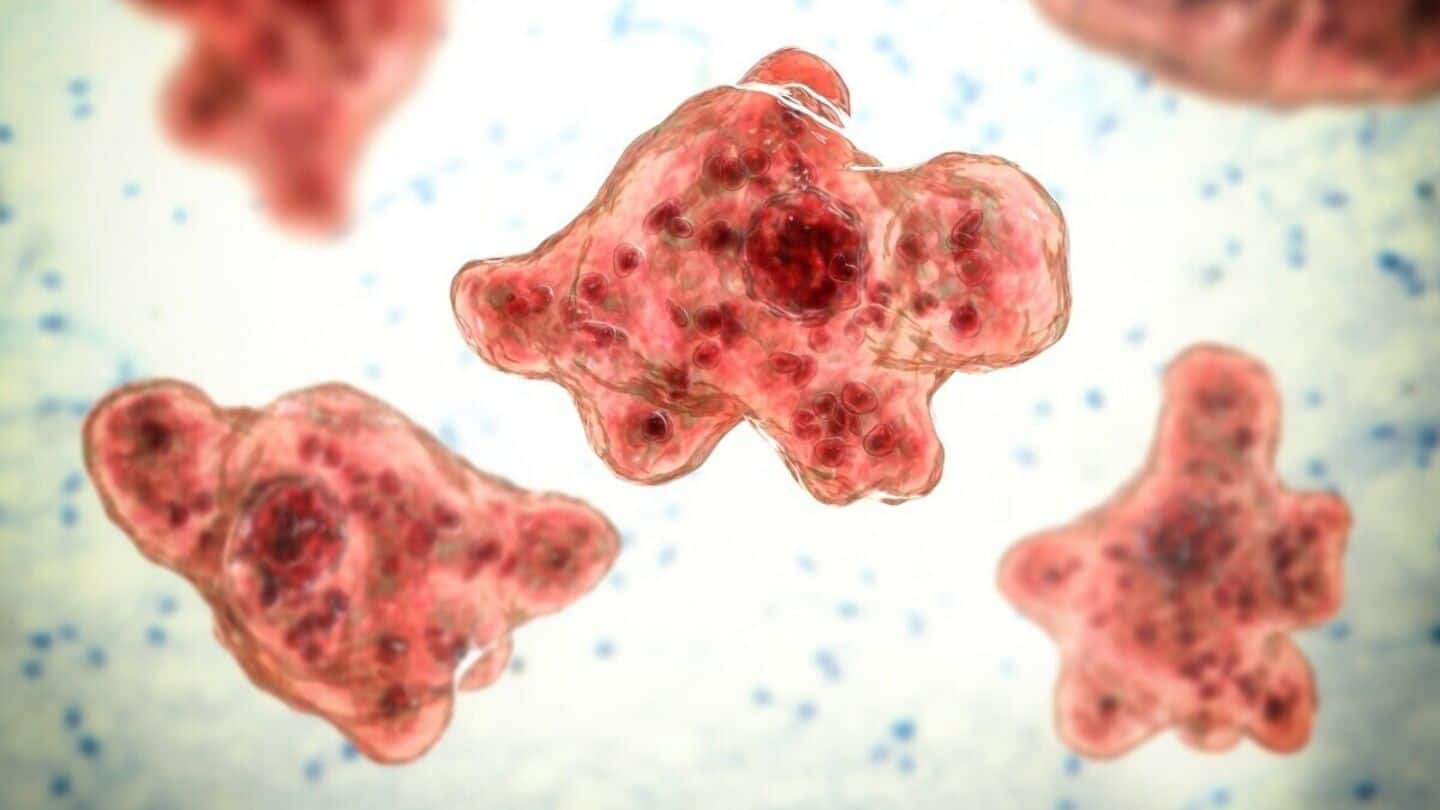
Kerala confirms 67 brain-eating amoeba cases; 18 deaths so far
What's the story
Kerala has reported 67 cases of amoebic meningoencephalitis, a rare and often fatal brain infection, this year. The disease has claimed 18 lives so far. The latest case involves a 17-year-old boy from Thiruvananthapuram who was diagnosed with the infection after visiting the Akkulam Tourist Village swimming pool. In light of this new case, health authorities have shut down the pool for further testing.
Preventive action
Health minister calls for immediate preventive measures
To tackle the amoebic meningoencephalitis outbreak, Kerala's Health Minister Veena George has called for immediate preventive measures. She stressed on the importance of water safety and sanitation, advising people against washing their faces or bathing in stagnant or polluted water. "We have to create a strong defense against amoebic meningoencephalitis," she said, stressing that wells and swimming pools should be scientifically chlorinated.
Fatalities
Deaths from rare disease in Kerala
The latest victim from the infection was Shobhana, a 56-year-old woman from Vandoor in Malappuram district, who died while being treated at Kozhikode Medical College Hospital. Another patient, Ratheesh from Sulthan Bathery, also succumbed to the infection at the same facility. While the number of infections has increased, health officials say there is some relief in the fact that the fatality rate for amoebic meningoencephalitis in Kerala (24%) is substantially lower than the global average (97%).
PAM
What is PAM
Naegleria fowleri is a thermophilic protozoan that lives in warm, freshwater sources such as ponds, lakes, wells, rivers, and pools with low chlorine levels, especially during the summer or monsoon season. The amoeba enters the body through the nasal passages, usually while swimming, bathing, or nasal irrigation, and quickly spreads to the brain, causing primary amoebic meningoencephalitis (PAM). Although extremely rare, PAM is almost always lethal. Global death rates range from 95 to 98 percent.